- Home
- Barry Eisler
Hard Rain
Hard Rain Read online
Hard Rain
The second book in the John Rain series
Barry Eisler
Copyright © 2003 by Barry Eisler
Synopsis
‘I insist on only a few questions. Is the target a man? I don't work against women or children. Have you retained anyone else to solve this problem? Is the target a principal? I am no longer samurai, either... I am a realist now’ John Rain, jazz fan, single malt connoisseur and honorable assassin, is dragged out of retirement first by blackmail and then by revenge. Featuring many of the characters so vividly brought to life in Rain Fall, Barry Eisler takes us on another journey into a world of spooks, double-crosses and elaborately executed ‘terminations’. Stylish, page-turning and authentic, Barry Eisler is in the front rank of thriller writing
CONTENT
Dedication
PART ONE
1
2
3
4
5
6
7
8
PART TWO
9
10
11
12
13
PART THREE
14
15
16
17
18
19
20
21
22
AUTHOR’S NOTE
DEEPEST THANKS
John Rain series:
Dedication
For Emma
You make my heart sing.
Evening cherry blossoms:
I slip the inkstone back into my kimono this one last time.
—DEATH POEM OF THE POET KAISHO, 1914
PART ONE
Had I not known that I was dead already. I would have mourned my loss of life.
—LAST WORDS OF OTA DOKAN, SCHOLAR OF MILITARY ARTS AND POET, 1486
1
ONCE YOU GET past the overall irony of the situation, you realize that killing a guy in the middle of his own health club has a lot to recommend it.
The target was a yakuza, an iron freak named Ishihara who worked out every day in a gym he owned in Roppongi, one of Tokyo’s entertainment districts. Tatsu had told me the hit had to look like natural causes, like they always do, so I was glad to be working in a venue where it was far from unthinkable that someone might keel over from a fatal aneurysm induced by exertion, or suffer an unlucky fall onto a steel bar, or undergo some other tragic mishap while using one of the complicated exercise machines.
One of these eventualities might even be immortalized in the warnings corporate lawyers would insist on placing on the next generation of exercise equipment, to notify the public of yet another unnatural use for which the machine was not intended and for which the manufacturer would have to remain blameless. Over the years, my work has made me the anonymous recipient of at least two such legal encomia—one on a bridge traversing the polluted waters of the Sumida River, in which a certain politician drowned in 1982 (“Warning—Do Not Climb On These Bars”); another, a decade later, following the aquatic electrocution of an unusually diligent banker, on the packaging of hair dryers (“Warning—Do Not Use While Bathing”).
The health club was also convenient because I wouldn’t have to worry about fingerprints. In Japan, where costumes are a national pastime, a weightlifter wouldn’t pump iron without wearing stylish padded gloves any more than a politician would take a bribe in his underwear. It was a warm early spring for Tokyo, portending, they said, a fine cherry blossom season, and where else but at a gym could a man in gloves have gone unnoticed?
In my business, going unnoticed is half the game. People put out signals—body language, gait, clothes, facial expression, posture, attitude, speech, mannerisms—that can tell you where they’re from, what they do, who they are. Most importantly, do they fit in. Because if you don’t fit in, the target will spot you, and after that you won’t be able to get close enough to do it right. Or the rare uncorrupt cop will spot you, and you’ll have some explaining to do. Or a counter-surveillance team will spot you, and then—congratulations!—the target will be you.
But if you’re attentive, you begin to understand that the identifying signals are a science, not an art. You watch, you imitate, you acquire. Eventually, you can shadow different targets through different societal ecosystems, remaining anonymous in all of them.
Anonymity wasn’t easy for me in Japan when my parentage was a matter of public record and schoolyard taunts. But today, you wouldn’t spot the Caucasian in my face unless someone tipped you off that it was there to be found. My American mother wouldn’t have minded that. She had always wanted me to fit in in Japan, and was glad that my father’s Japanese features had prevailed in that initial genetic struggle for dominance. And the plastic surgery I had undergone when I returned to Japan after my fling with U.S. Special Forces in Vietnam largely completed the job that chance and nature had begun.
The story my signals would tell the yakuza was simple. He’d only begun seeing me at his gym recently, but I was already obviously in shape. So I wasn’t some middle-aged guy who’d decided to take up weight lifting to try and regain a lost college-era physique. The more likely explanation would be that I worked for a company that had transferred me to Tokyo, and, if they had sprung for digs near Roppongi, maybe in Minami-Aoyama or Azabu, I must be someone reasonably important and well compensated. That I was apparently into bodybuilding at all at this stage in my life probably meant affairs with young women, for whom a youthful physique might ameliorate the unavoidable emotional consequences of sleeping with an older man in what at root would be little more than an exchange of sex and the illusion of immortality for Ferragamo handbags and the other implicit currencies of such arrangements. All of which the yakuza would understand, and even respect.
In fact, my recent appearance at the yakuza’s gym had nothing to do with a company transfer—it was more like a business trip. After all, I was in Tokyo just to do a job. When the job was finished, I would leave. I’d done some things to generate animosity when I’d been living here, and the relevant parties might still be looking for me, even after I’d been away for a year, so a short stay was all I could sensibly afford.
Tatsu had given me a dossier on the yakuza a month earlier, when he’d found me and persuaded me to take the job. From the contents, I would have concluded that the target was just mob muscle, but I knew he must be more than that if Tatsu wanted him eliminated. I hadn’t asked. I only wanted the particulars that would help me get close. The rest was irrelevant.
The dossier had included the yakuza’s cell phone number. I had fed it to Harry, who, compulsive hacker that he was, had long since penetrated the cellular network control centers of Japan’s three telco providers. Harry’s computers were monitoring the movements of the yakuza’s cell phone within the network. Any time the phone got picked up by the tower that covered the area around the yakuza’s health club, Harry paged me.
Tonight, the page had come at just after eight o’clock, while I was reading in my room at the New Otani hotel in Akasaka-Mitsuke. The club closed at eight, I knew, so if the yakuza was working out there after hours there was a good possibility he’d be alone. What I’d been waiting for.
My workout gear was already in a bag, and I was out the door within minutes. I caught a cab a slight distance from the hotel, not wanting a doorman to hear or remember where I might be going, and five minutes later I exited at the corner of Roppongi-dori and Gaienhigashi-dori in Roppongi. I hated to use such a direct route because doing so afforded me limited opportunity to ensure that I wasn’t being followed, but I had only a little time to pull this off the way I’d planned, and I decided it was worth the risk.
I had been watching the yakuza for over a month now, and knew his routi
nes. I’d learned that he liked to vary the times of his workouts, sometimes arriving at the gym early in the morning, sometimes at night. Probably he assumed the resulting unpredictability would make him hard to get to.
He was half right. Unpredictability is the key to being a hard target, but the concept applies to both time and place. Half-measures like this guy’s will protect you from some of the people some of the time, but they won’t save you for long from someone like me.
Strange, how people can take adequate, even strong security measures in some respects, while leaving themselves vulnerable in others. Like double-locking the front door and leaving the windows wide open.
Sometimes the phenomenon is caused by fear. Fear not so much of the requirements, but rather the consequences of life as a hard target. Seriously protecting yourself calls for the annihilation of ties with society, ties that most people need the way they need oxygen. You give up friends, family, romance. You walk through the world like a ghost, detached from the living around you. If you were to die in, say, a bus accident, you’d wind up buried in an obscure municipal graveyard, just another John Doe, no flowers, no mourners, hell, no mourning. It’s natural, probably even desirable, to be afraid of all this.
Other times there’s a form of denial at work. Circuitous routes, extensive security checks, an ongoing internal dialogue consisting of If I were trying to get to me, how would I do it? all require a deep acceptance of the notion that there are people out there who have both the motive and the means to cut short your time on Earth. This notion is innately uncomfortable for the human psyche, so much so that it produces enormous stress even for soldiers in battle. A lot of guys, the first time they come under close-range fire, they’re shocked. “Why’s he trying to kill me?” they’re asking themselves. “What did I ever do to him?”
Think about it. Ever look in a closet or under the bed, when you’re alone in the house, to ensure that an intruder isn’t hiding there? Now, if you really believed that the Man in the Black Ski Mask was lurking in those places, would you behave the same way? Of course not. But it’s more comfortable to believe the danger only in the abstract, and to act on it only half-heartedly. That’s denial.
Finally, and most obviously, there is laziness. Who has the time or energy to inspect the family car for improvised explosive devices before every drive? Who can afford a two-hour, roundabout route to get to a place that could have been reached directly in ten minutes? Who wants to pass up a restaurant or bar just because the only seats available face the wall, not the entrance?
Rhetorical questions, but I know how Crazy Jake would have answered. The living, he would have said. And the ones who intend to go on that way.
Which leads to an easy rationalization, one that I’m sure is common to people who have taken lives the way I have. If he’d really wanted to live, the rationalization goes, I wouldn’t have been able to get to him. He wouldn’t have permitted himself that weakness, the one that did him in.
The yakuza’s weakness was his addiction to weights. Who knows what fueled it—a history of childhood bullying that made him want to appear visibly strong afterward, an attempt to overcome a feeling of inadequacy born of being naturally slighter of build than Caucasians, some suppressed homoeroticism like the one that drove Mishima. Maybe some of the same impulses that had led him to become a gangster to begin with.
His obsession had nothing to do with health, of course. In fact, the guy was an obvious steroid abuser. His neck was so thick it looked as though he could slide a tie up over his head without having to loosen the knot, and he sported acne so severe that the club’s stark incandescent lighting, designed to show off to maximum effect the rips and cuts its members had developed in their bodies, cast small shadows over the pocked landscape of his face. His testicles were probably the size of raisins, his blood pressure likely rampaging through an overworked heart.
I’d also seen him explode into the kind of abrupt, unprovoked violence that is another symptom of steroid abuse. One night, someone I hadn’t seen before, no doubt one of the club’s civilian members who liked the location and thought that rubbing elbows with reputed gangsters made them tougher by osmosis, started removing some of the numerous iron plates that were weighing down the bar the yakuza had been using to bench-press. The yakuza had walked away from the station, probably to take a break, and the new guy must have mistakenly assumed this meant he was through. The guy was pretty sizable himself, his colorful Spandex sleeveless top showing off a weightlifter’s chest and arms.
Someone probably should have warned him. But the club’s membership consisted primarily of chinpira—low-level young yakuza and wanna-be punks—not exactly good Samaritan types who were interested in helping their fellow man. Anyway, you have to be at least mildly stupid to start disassembling a bar like the one the yakuza was using without looking around for permission first. There were probably a hundred and fifty kilos on it, maybe more.
Someone nudged the yakuza and pointed. The yakuza, who had been squatting, reared up and bellowed, “Orya!” loud enough to vibrate the plate glass in the front of the rectangular room. What the fuck!
Everyone looked up, as startled as if there had been an explosion—even the new guy who had been so clueless just an instant earlier. Still bellowing expletives, the yakuza strode directly to the bench-press station, doing a good job of using his voice, either by instinct or design, to disorient his victim.
Everything about the yakuza—his words, his tone, his movement and posture—screamed Attack! But the man was too frozen, either by fear or denial, to move off the line of assault. And although he was holding a ten-kilo iron plate with edges considerably harder than the yakuza’s cranium, the man did nothing but drop his mouth open, perhaps in surprise, perhaps in inchoate and certainly futile apology.
The yakuza blasted into him like a rhino, his shoulder driving into the man’s stomach. I saw the man try to brace for the impact, but again he failed to move off the line of attack and his attempt was largely useless. The yakuza drove him backward into the wall, then unleashed a flurry of crude punches to his head and neck. The man, in shock now and running on autopilot, dropped the plate and managed to raise his arms to ward off a few of the blows, but the yakuza, still bellowing, slapped the attempted blocks out of the way and kept on punching. I saw one of his shots connect to the left side of the man’s neck, to the real estate over the carotid sinus, and the man began to crumble as his nervous system overcompensated from the shock of the blow by reducing blood pressure to the brain. The yakuza, feet planted widely as though he had an ax and was splitting logs, continued to hammer at the top of his victim’s head and neck. The man fell to the floor, but retained enough consciousness to curl up and protect himself to some extent from the hail of kicks that followed.
Huffing and swearing, the yakuza bent and caught the prostrate man’s right ankle between an enormous biceps and forearm. For a moment, I thought he was going to apply a jujitsu leglock and try to break something. Instead, he straightened and proceeded to drag the man’s prone form to the club’s entrance and out into the street.
He returned a moment later, alone, and, after taking a moment to catch his breath, resumed his rightful place on the bench without looking at anyone else in the room. Everyone returned to what they were doing: his affiliates, because they didn’t care; the civilians, because they were unnerved. It was as though nothing had happened, although the silence in the club indicated that indeed something had.
A part of my mind that’s always running in the background logged what I saw as the yakuza’s assets: raw strength, experience with violence, familiarity with principles of continuous attack. Under weaknesses, I placed lack of self-control, shortness of breath after a brief and one-sided fight, relatively minimal damage caused despite ferocity of assault.
Unless he was a borderline sociopath, which was statistically unlikely, I knew the yakuza would now be feeling slightly uneasy about what people must have made of his outburst. I took
the opportunity to stroll over to the bench-press station and ask him if he needed a spot.
“Warui na,” he thanked me, grateful, I knew, for the comfort this simple interaction afforded him.
“Iya,” I replied. It’s nothing. I stood over him and helped him get the bar in the air. I noted that he was moving a hundred and fifty-five kilos. He managed two repetitions, with some assistance from me on the second. He would still be fully adrenalized from his recent altercation, and I made a mental note of the limits of his strength at this exercise.
I helped him guide the bar back onto the uprights, then whistled quietly through my teeth in slightly theatrical deference to his power. I moved to the foot of the bench as he sat up and told him that if he needed another spot, he should just ask me. He nodded his head in gruff thanks and I began to turn away.
I paused as though considering whether to add something, then turned back to him. “That guy should have checked to see if you were done with this station,” I said in Japanese. “Some people have no manners. You taught him a lesson.”
He nodded again, pleased at my astute assessment of the important social service he had provided in pulverizing some harmless idiot, and I knew that he would be comfortable calling on me, his new friend, from time to time when he needed a spot.
Like tonight, I hoped. I moved quickly down Gaienhigashi-dori, easing past pedestrians on the crowded sidewalk, ignoring the cacophony of traffic and sound trucks and touts, using the chrome and glass around me to gauge whether there was anyone to my rear trying to keep up. I turned right just before the Roi Roppongi Building, then right again onto the club’s street, where I paused behind a thicket of parked bicycles, my back to the incongruous pink exterior of a Starbucks coffee shop, waiting to see who might be trailing in my wake. A few groups of young partygoers drifted by, caught up in the urgent business of entertaining themselves and failing to notice the man standing quietly in the shadows. No one set off my radar. After a few minutes, I made my way to the club.

 All the Devils
All the Devils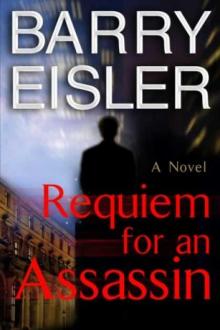 Requiem for an Assassin
Requiem for an Assassin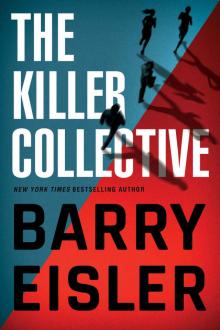 The Killer Collective
The Killer Collective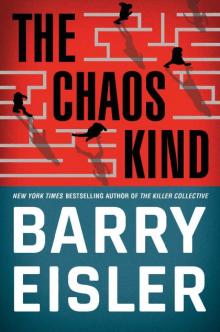 The Chaos Kind
The Chaos Kind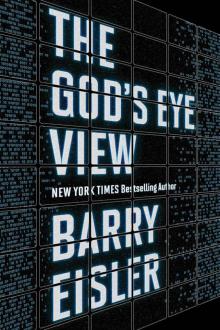 The God's Eye View
The God's Eye View Paris is a Bitch
Paris is a Bitch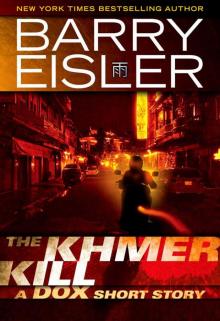 The Khmer Kill: A Dox Short Story (Kindle Single)
The Khmer Kill: A Dox Short Story (Kindle Single)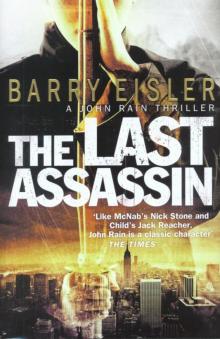 The Last Assassin
The Last Assassin The Detachment
The Detachment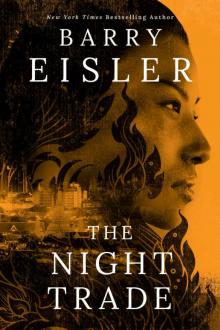 The Night Trade (A Livia Lone Novel Book 2)
The Night Trade (A Livia Lone Novel Book 2)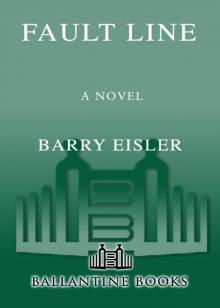 Fault Line
Fault Line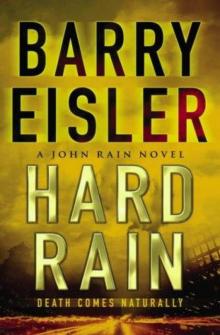 Hard Rain
Hard Rain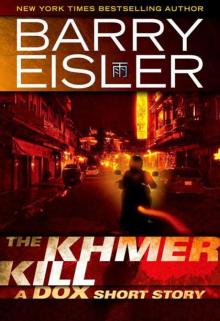 The Khmer Kill_A Dox Short Story
The Khmer Kill_A Dox Short Story London Twist: A Delilah Novella
London Twist: A Delilah Novella The Lost Coast
The Lost Coast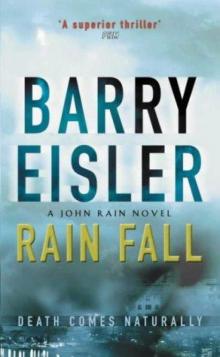 Rain Fall
Rain Fall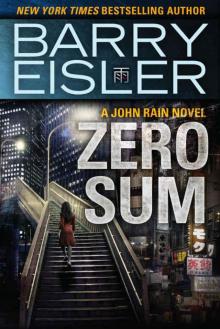 Zero Sum
Zero Sum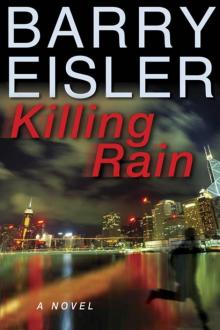 Killing Rain
Killing Rain John Rain 08: Graveyard of Memories
John Rain 08: Graveyard of Memories A Clean Kill in Tokyo (previously published as Rain Fall)
A Clean Kill in Tokyo (previously published as Rain Fall) Inside Out: A novel
Inside Out: A novel John Rain 07 - The Detachment
John Rain 07 - The Detachment Graveyard of Memories
Graveyard of Memories The Lost Coast -- A Larison Short Story
The Lost Coast -- A Larison Short Story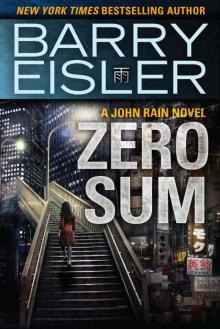 Zero Sum (A John Rain Novel)
Zero Sum (A John Rain Novel)